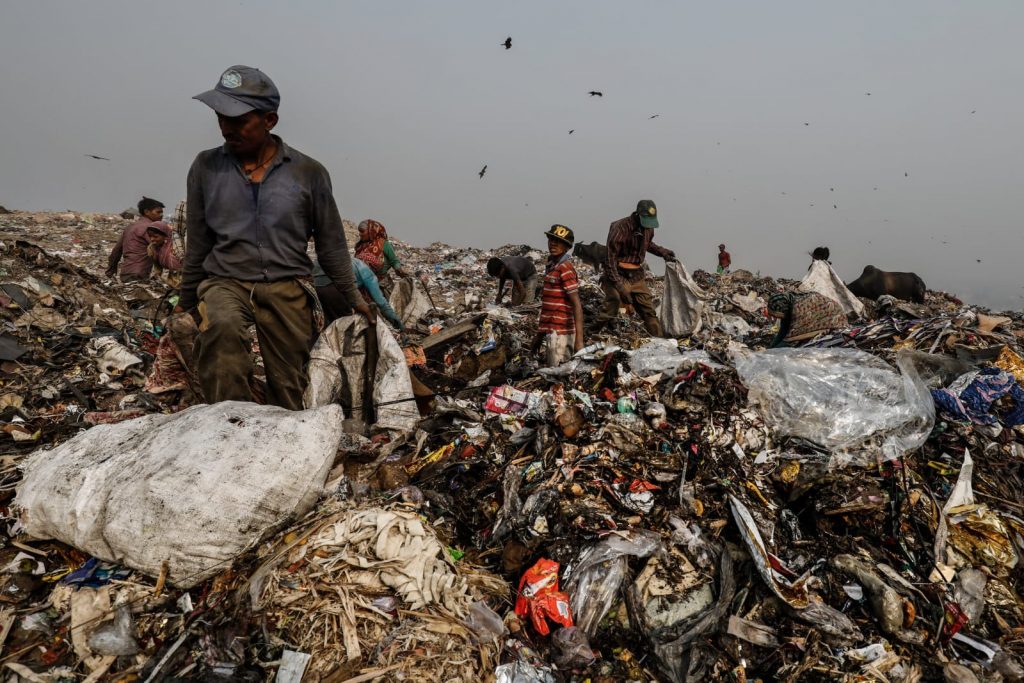Delhi, the capital of India, is a vast and densely populated city that generates thousands of tons of waste every day. According to a report, it earns approximately 1.5 crore rupees daily from waste pickers. This revelation has been disclosed through an ASCI audit.

According to the audit report, 11 thousand 30 metric tons of garbage is generated daily in Delhi. In this, more than 10 percent of the waste is disposed of in unplanned areas. Three percent of the waste is being disposed through Material Recovery Facility MRF and more than 55 percent of the waste is used in waste-to-energy plants.
Every day, residents of Delhi collectively produce a staggering 11,030 metric tons of garbage. Within this waste stream, approximately 10 percent (1.10 lakh kg) comprises items such as plastic, iron, e-waste, rubber, and paper cardboard. Notably, plastic waste alone, valued at Rs 12 per kg, contributes significantly, allowing individuals to generate a daily income of Rs 1.32 crore by selling this salable waste. If we extend the consideration to include iron and paper waste, the potential daily earnings can escalate to Rs 5 crore. These findings emerged during an audit conducted by ASCI on the Delhi Municipal Corporation, aimed at enhancing cleanliness levels and identifying areas for improvement.
According to the audit report, Delhi generates 11,030 metric tons of garbage daily, with over 10% disposed of in unplanned areas. About 3% goes through the Material Recovery Facility, while 55% is used in waste-to-energy plants, and 20% ends up in landfills. Seven percent remains scattered on roads. Waste pickers earn over Rs 14,000, and their contractors earn Rs 25,000 monthly.
The audit recommendations include ensuring door-to-door waste collection, improving cleanliness arrangements on streets and alleys, establishing waste management monitoring centers for effective oversight, raising awareness about cleanliness among the public, and strengthening waste disposal plans at both ward and zone levels.










